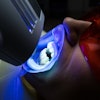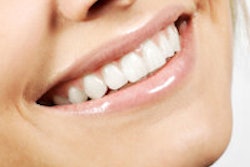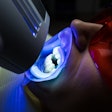The North Carolina State Board of Dental Examiners has lost its appeal of a U.S. Federal Trade Commission (FTC) ruling that supported the right of nondentists to offer teeth-whitening products and services in the state.
On May 31, in the U.S. Court of Appeals in the Fourth Circuit in Richmond denied the board's appeal.
The FTC's original complaint against the dental board, issued in June 2010, alleged that the board sent dozens of letters instructing nondentist teeth-whitening providers that they were practicing dentistry illegally and ordering them to stop. The board also threatened or discouraged nondentists who were considering opening teeth-whitening businesses and sent letters to mall owners and property management companies urging them not to lease space to nondentist teeth-whitening providers, according to the FTC.
In November 2010, the board filed a motion seeking to dismiss the FTC's charges based on the state action doctrine. On February 1, 2011, the board filed a lawsuit against the FTC, accusing the commission of violating the U.S. Constitution in its attempts to keep the board from regulating teeth-whitening services offered by nondentists. Also that month, the FTC denied the board's motion to dismiss the FTC's complaint, unanimously rejecting the board's argument that the state action doctrine exempts it from antitrust scrutiny under the Federal Trade Commission Act.
In July 2011, Chief Administrative Law Judge D. Michael Chappell issued an initial decision that concluded the board's actions constituted "unreasonable restraint of trade and an unfair method of competition." A month later, the board appealed that decision, but in December 2011, the FTC held that the board excluded nondentist providers from the market for teeth-whitening services, in violation of the Federal Trade Commission Act. The board again appealed; it was this latest appeal that was denied last week.
"Here, the fact that the Board is comprised of private dentists elected by other private dentists, along with North Carolina's lack of active supervision of the Board's activities, leaves us with little confidence that the state itself, rather 37 than a private consortium of dentists, chose to regulate dental health in this manner at the expense of robust competition for teeth whitening services," Circuit Judge Barbara Milano Keenan wrote in the denial. "Accordingly, the Board's actions are those of a private actor and are not immune from the antitrust laws under the state action doctrine."



















